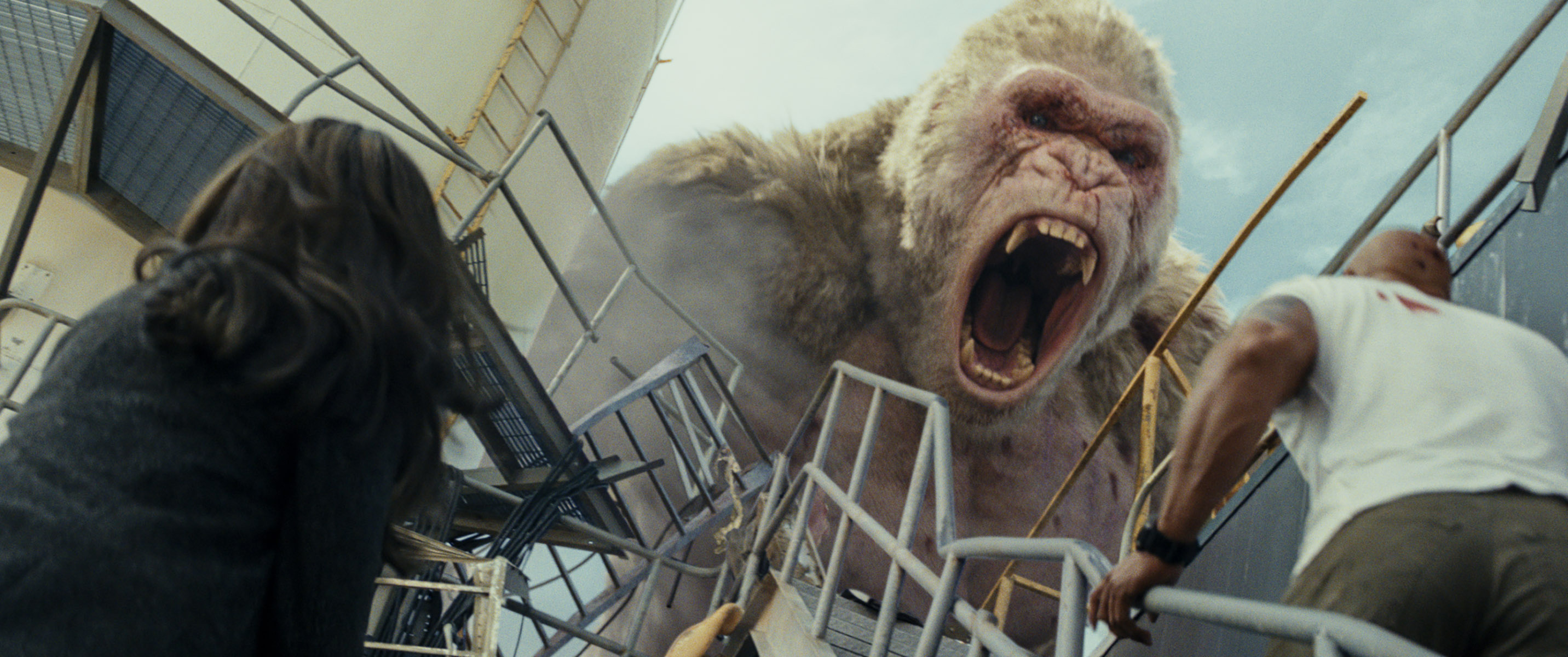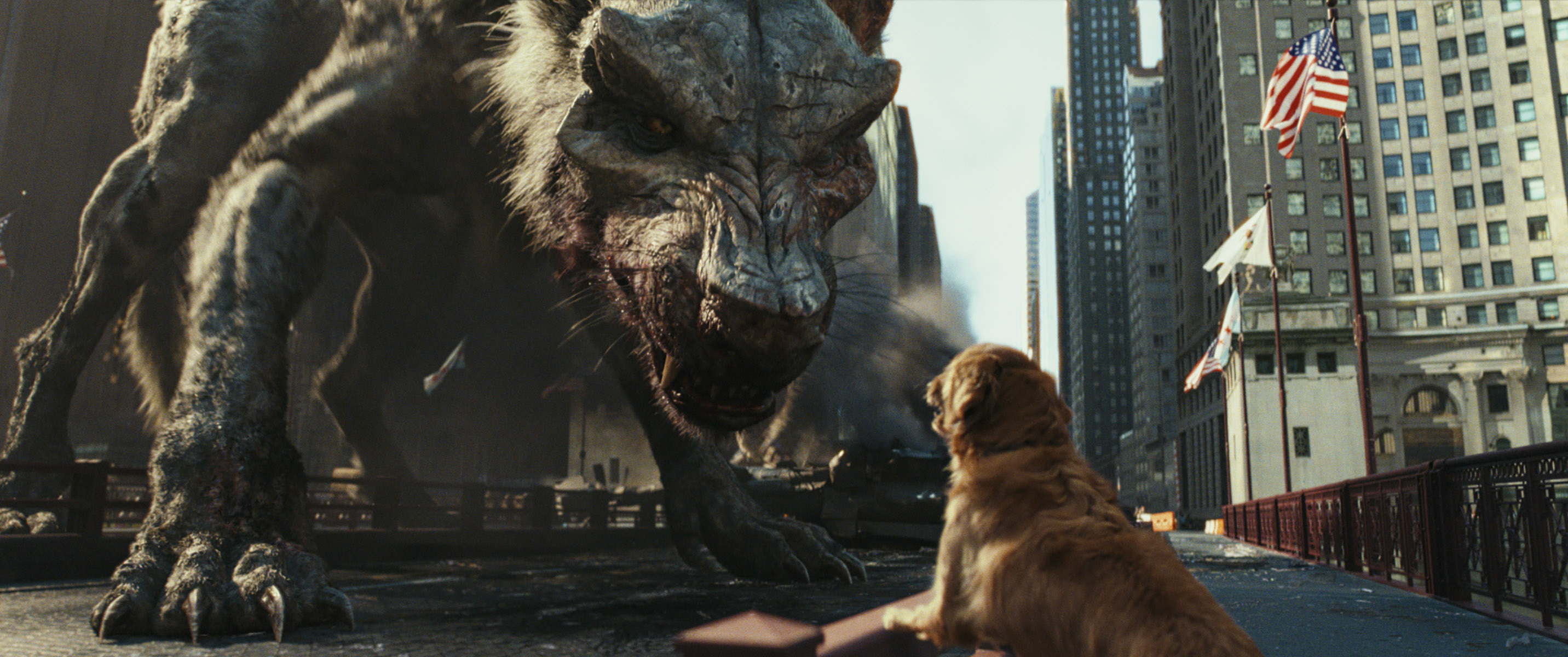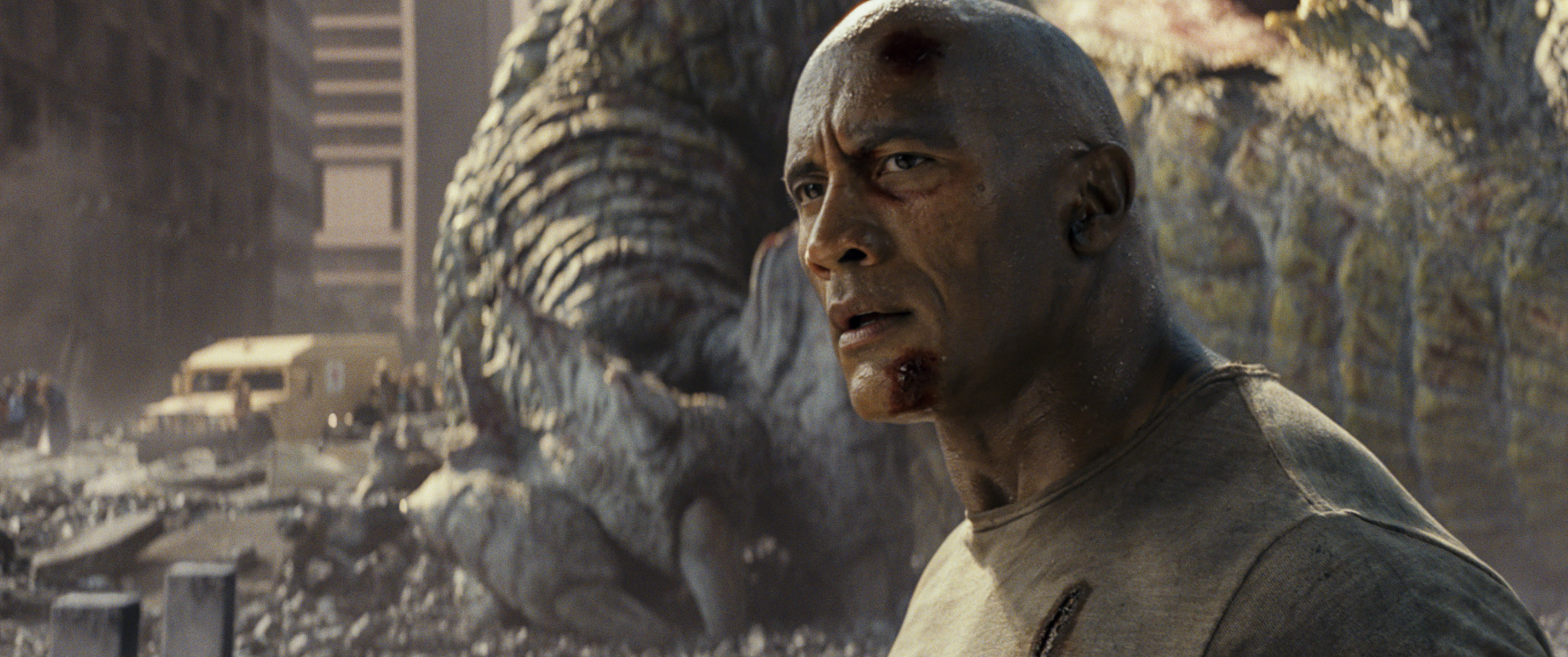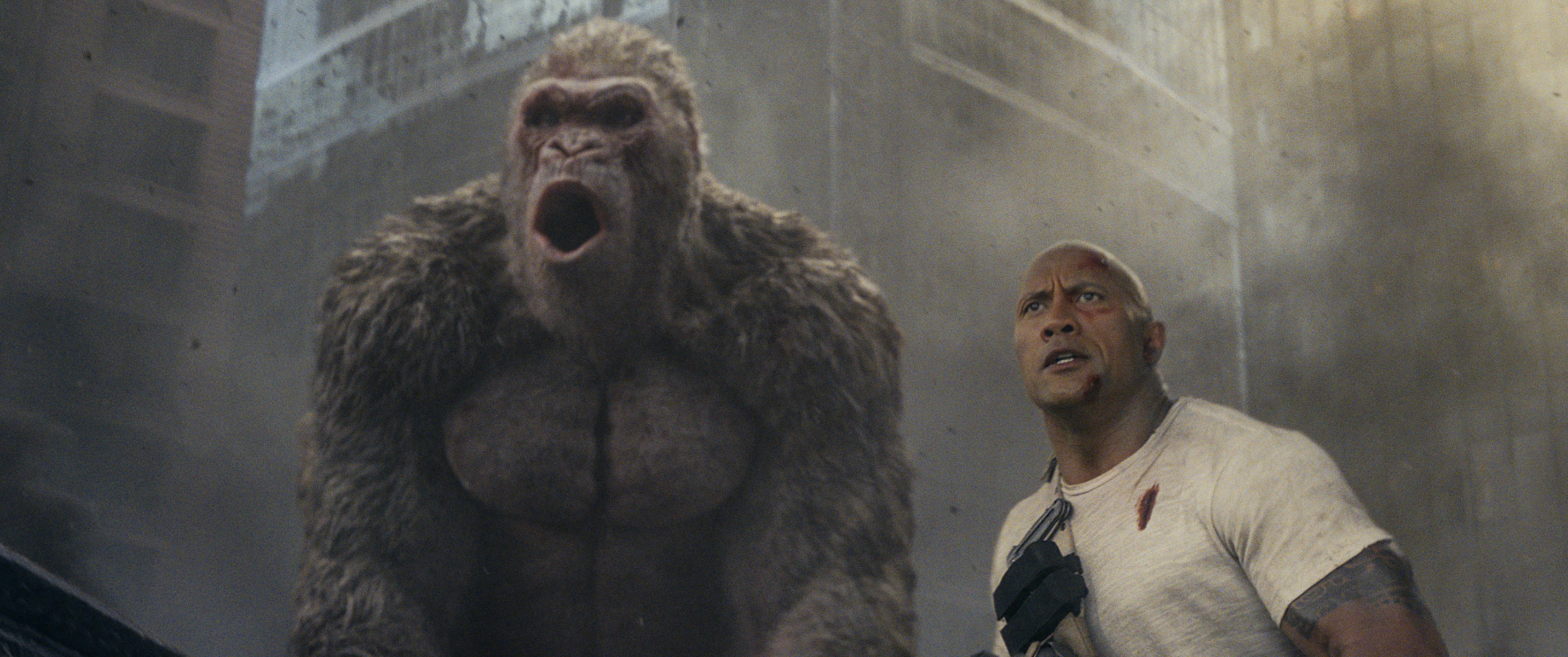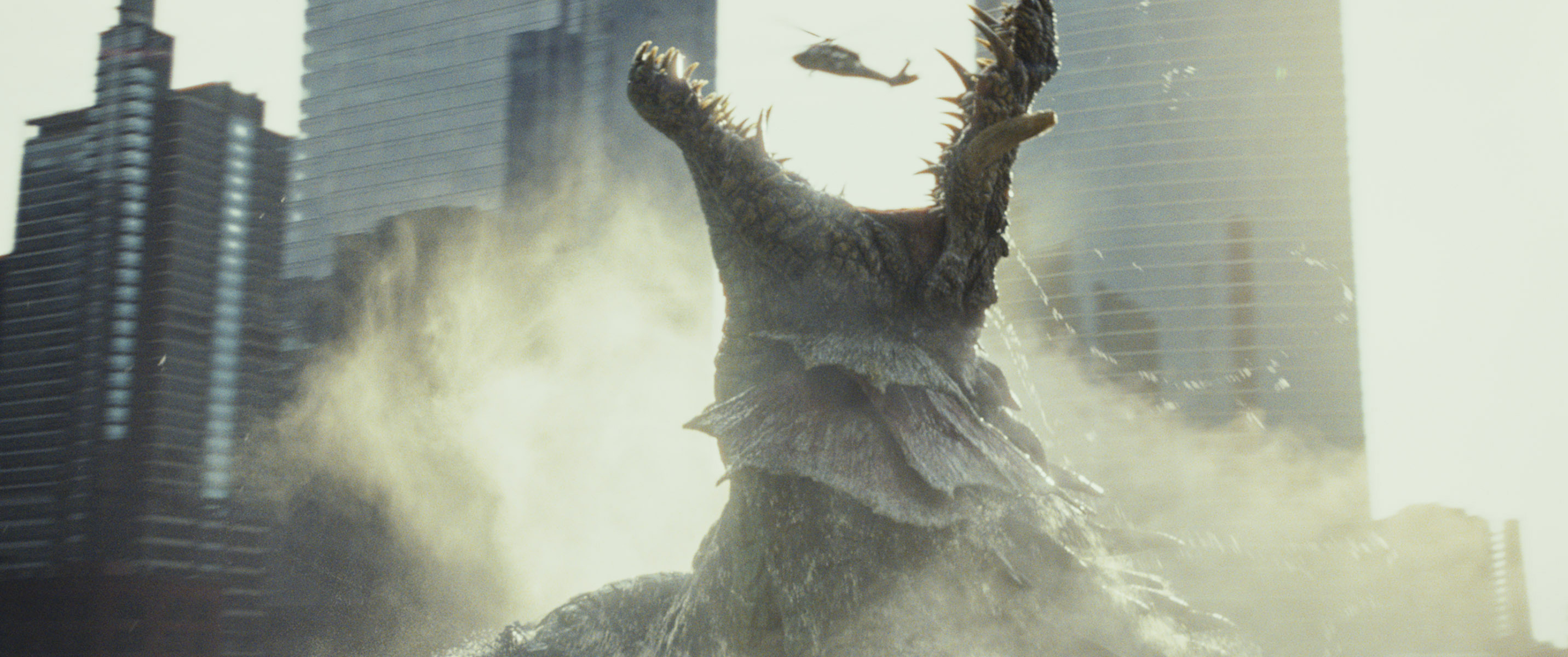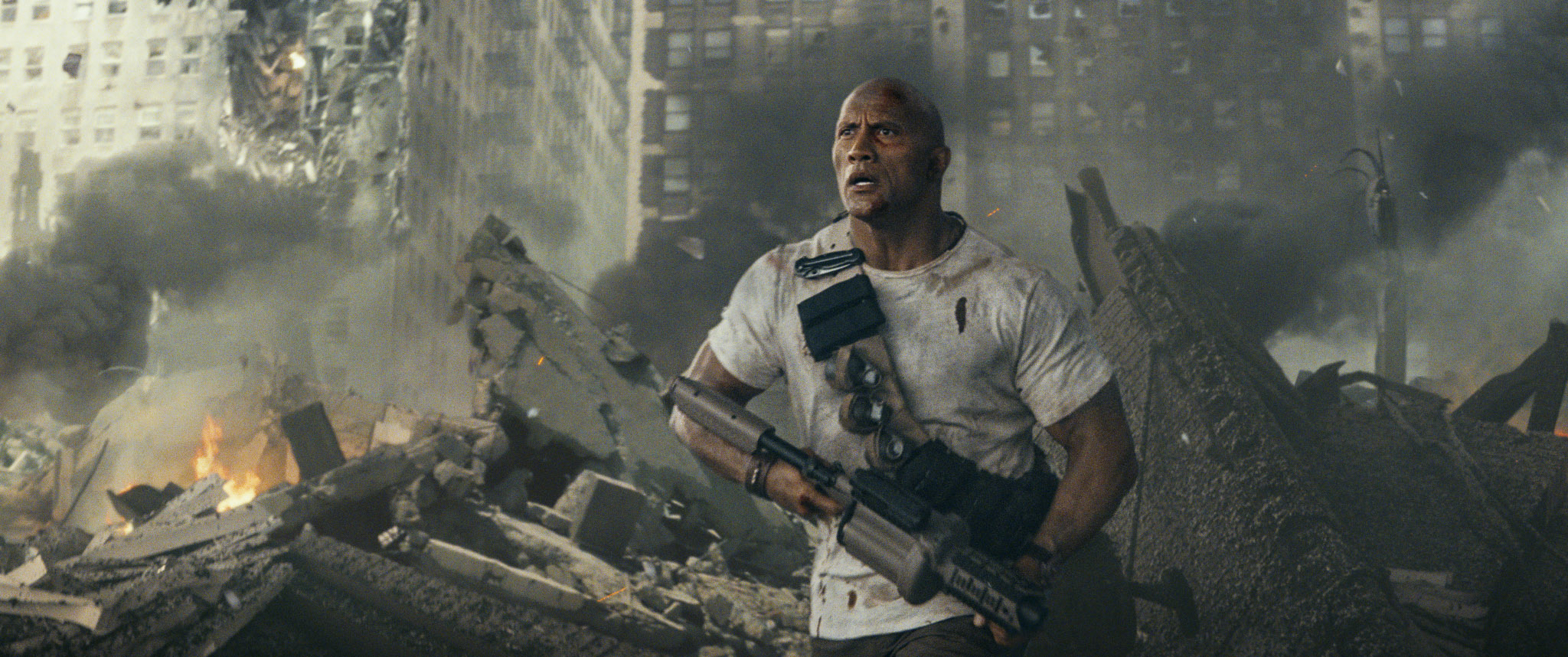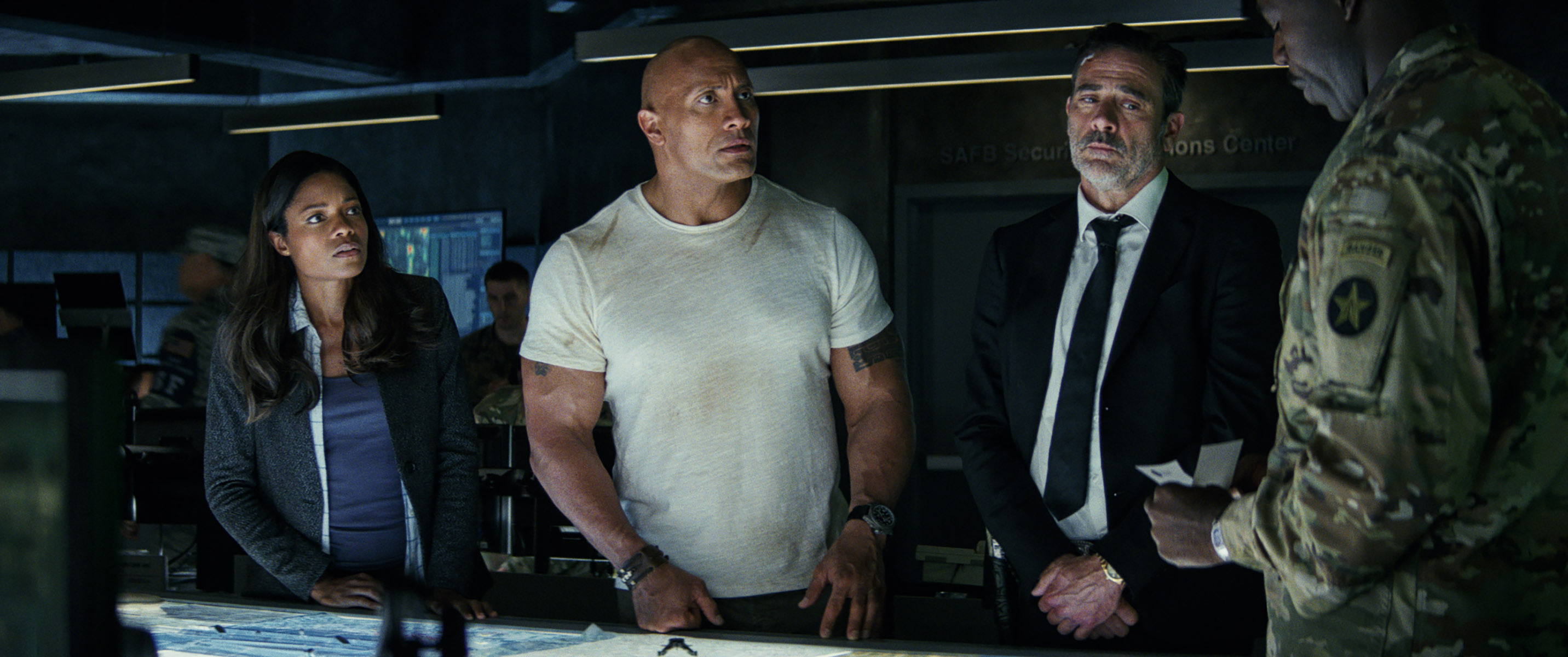The 1986 arcade game Rampage had players control one of three giant monsters while trying to destroy a city and simultaneously avoiding the attacks of human military units. The game was popular enough to spawn multiple sequels that made the leap from arcade to console over the years, but never seemed like big-screen source material — even after an adaptation was announced back in 2011.
If that synopsis seems a little, well … silly, that’s because it is.
If there’s one thing that’s been proven over and over in Hollywood, though, it’s that casting Dwayne Johnson in a film can turn even the most improbable, unlikely premise into a good time at the theater. And Rampage is no exception.
Directed by Brad Peyton, Rampage casts Johnson as Davis Okoye, a former Special Forces soldier who now works as a West Coast primatologist leading an international anti-poaching initiative.
When the rescued albino gorilla he shares a close bond with is affected by a strange gas that causes him to grow exponentially and become more aggressive, Davis soon finds himself caught up in a mission to stop not one but three gigantic, mutated animals smashing their way across America.
Although the film makes it abundantly clear that Davis could probably handle this problem on his own, he still ends up getting some help from a genetic engineer played by Oscar nominee Naomie Harris (Moonlight) and a smooth-talking government agent played by Jeffrey Dean Morgan (The Walking Dead).
If that synopsis seems a little, well … silly, that’s because it is.
That’s OK, though, because the film never attempts to take itself too seriously, and neither does Johnson, who manages to find just the right balance of sincerity and self-awareness to make Rampage an entertaining adventure.
The wrestler-turned-actor has a fantastic knack for making audiences feel like they’re part of an inside joke he’s sharing with them, and it plays well in Rampage. Acknowledging how surreal the events unfolding around him are without breaking the fourth wall isn’t easy, but when the film’s giant wolf suddenly soars through the sky, revealing flying-squirrel skin flaps, Johnson can get away with sarcastically noting, “Oh, of course the giant wolf has wings.”
Not every actor is afforded that level of friendly, wink-and-nod informality with his audience, but it seems natural for Johnson, and goes a long way toward preventing Rampage from descending into cheesy campiness, and more importantly, it helps keep the story fun.
Still, Rampage has some big problems that even Johnson’s charisma can’t hide.
There’s a number of named characters who are established as key figures in Davis’ life, only to subsequently vanish.
The supporting cast feels strangely disposable in the film, as several characters are introduced and developed early on with quite a bit of screen time, only to disappear entirely by the film’s halfway point. Sure, one character played by a relatively high-profile actor gets dispatched at a surprisingly early point in the movie (no spoilers), but there’s a substantial number of other named characters who are established as key figures in Davis’ life, only to subsequently vanish.
These supporting characters’ unexpected absence makes the film feel more choppy than it should, as if large chunks of the script — the parts that made these characters’ presence necessary — were abruptly cut at some point.
There’s also the issue of Morgan’s affected portrayal of government agent Russell. The Watchmen and The Walking Dead actor goes all-in on a southern drawl that seems comically exaggerated, drawing from a place somewhere between KFC mascot Colonel Sanders and Sorrell Booke’s Boss Hogg in Dukes of Hazzard.

Given the premise of the film, Morgan’s performance could just as easily be considered another part of the overall, campy package that Rampage brings to the screen, so it’s likely to go over well with some audiences, but grate on others.
It’s best not to over-think it, and to simply enjoy it for the wild ride that it is.
Rampage relies heavily on visual effects, and while the majority of the sequences with George the giant ape and his mutated wolf and lizard counterparts are crisply animated with an imperceptible line between the human cast and the digital characters, the film does fall back on some less-impressive green-screen moments. Some of the later scenes in particular feature a discernible blur where human characters and practical sets meet digital characters and environments, and it can be a little distracting once it catches the eye and inevitably becomes difficult not to see in subsequent scenes.
Much like Morgan’s accent, however, the visual and technical issues in Rampage are easily dismissed amid the general sense of reckless, ridiculous action that the movie offers its audience. It’s a movie that asks for some suspension of rational thought, and in return, provides an exciting, funny, and ultimately entertaining big-screen experience.
Rampage is loud, silly, and pairs one of Hollywood’s most charismatic actors with a giant gorilla prone to making obscene gestures. All that to say, it’s best not to over-think it, and to simply enjoy it for the wild ride that it is.
